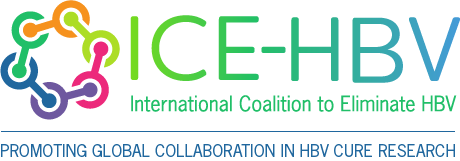Peter Revill
ICE-HBV Past Chair
Melbourne, Australia
Professor Peter Revill, AM, is Head of Regional and Global Health at the Victorian Infectious Diseases Reference Laboratory (VIDRL) at the Peter Doherty Institute for Infection and Immunity, where he is also head of International Research Partnerships and co-lead of the Global Health Cross-cutting Discipline. Professor Revill has a strong national and international reputation in hepatitis B virus (HBV) virology and in 2016 he co-founded the global HBV cure initiative, the International Coalition to Eliminate Hepatitis B (ICE-HBV). In 2021 he was appointed theme leader in Virology by the Australian Society for Microbiology and in 2022 he was recognized in the Queen’s Birthday Order of Australia honors for services to Microbiology and Immunology research.
